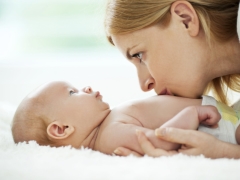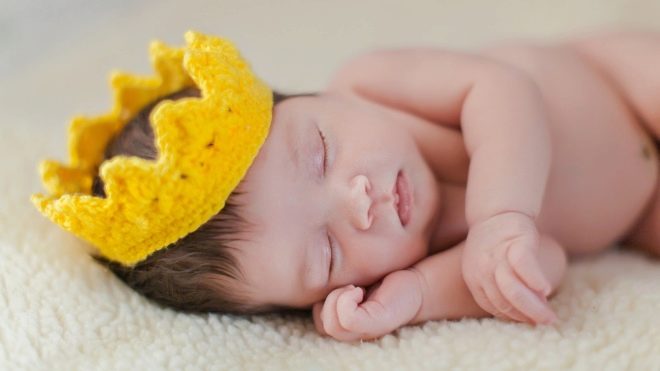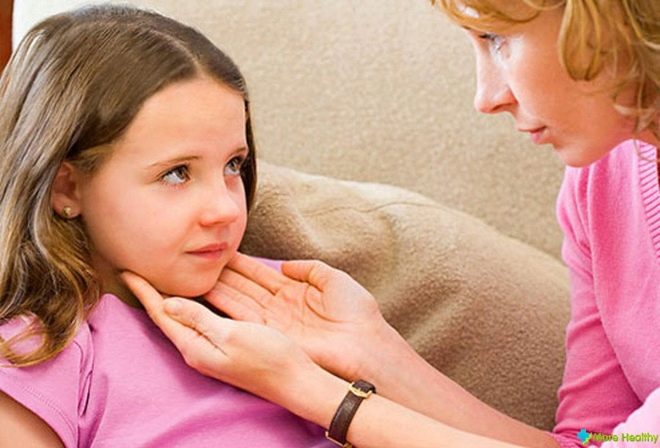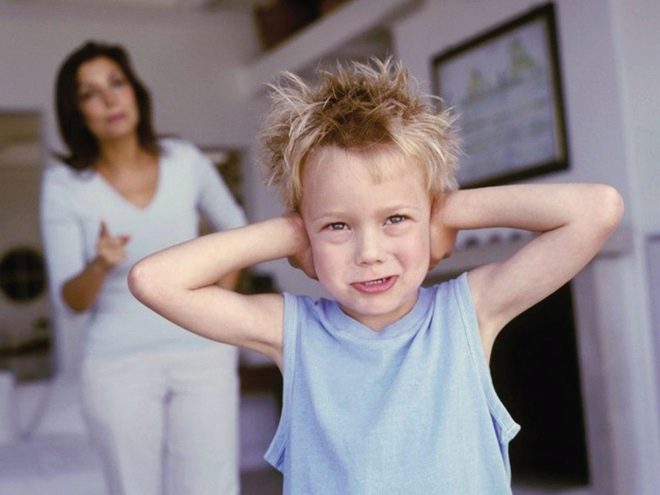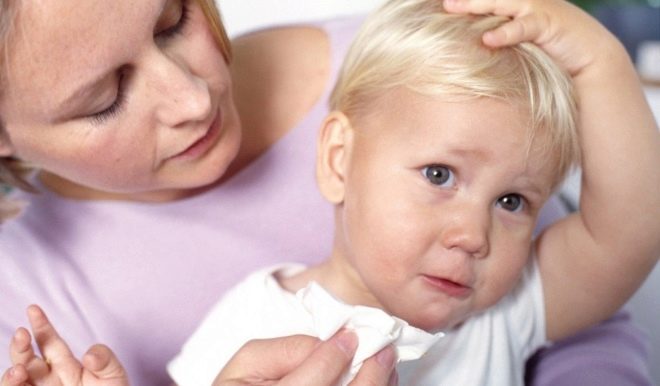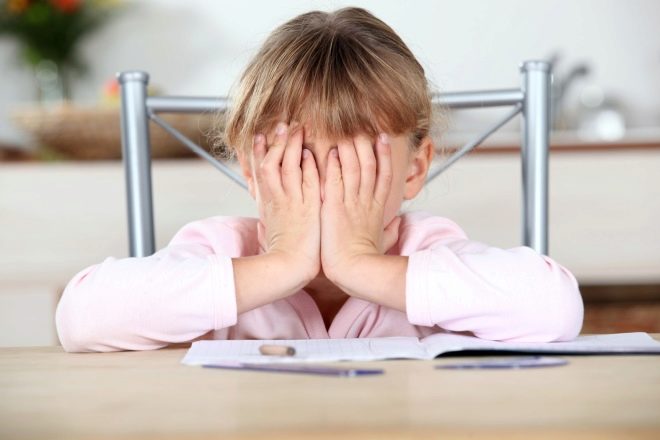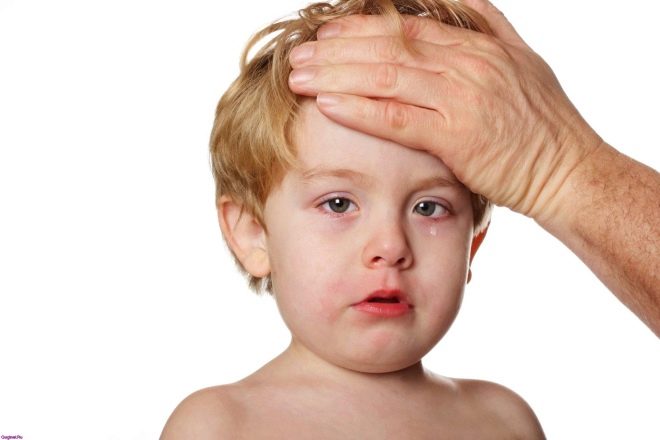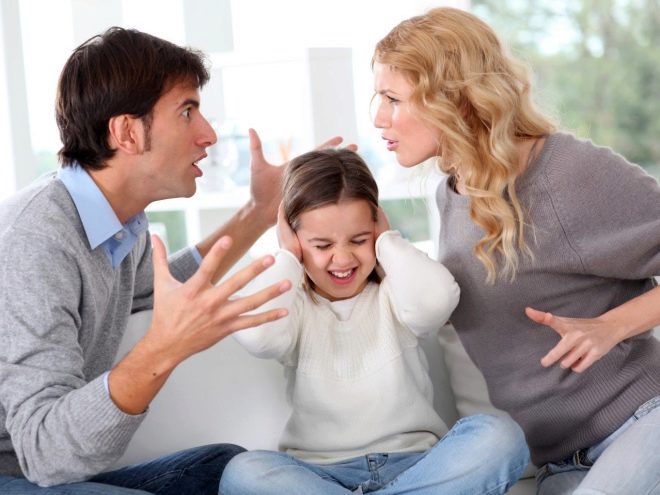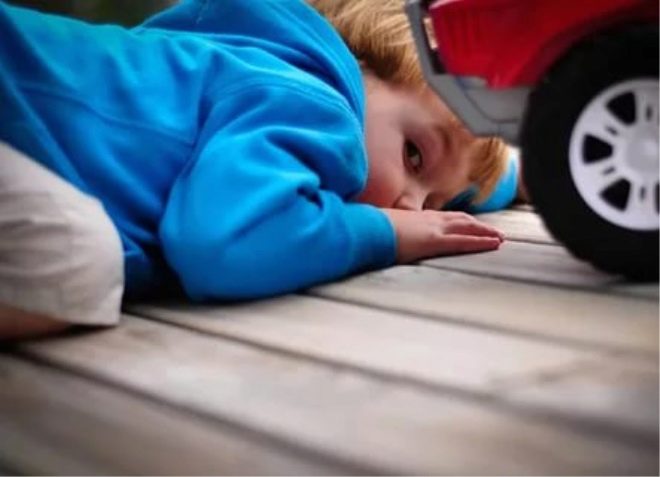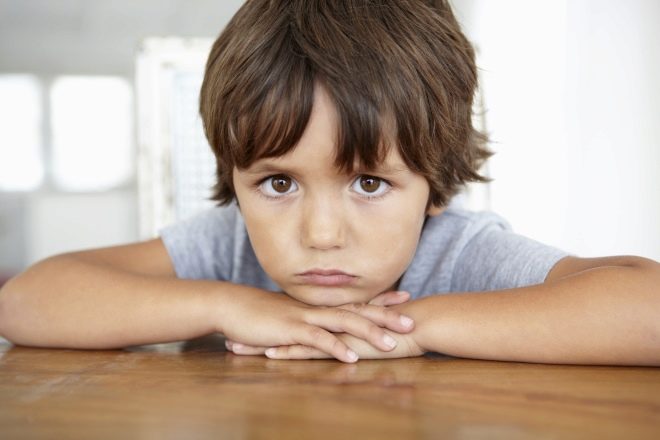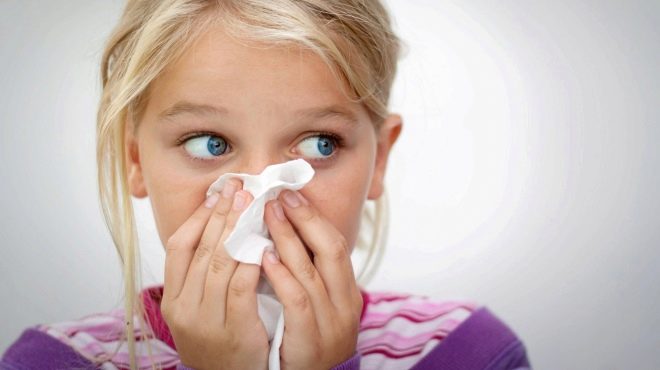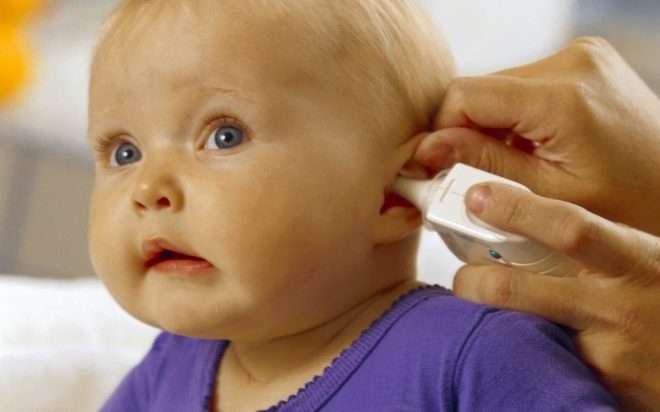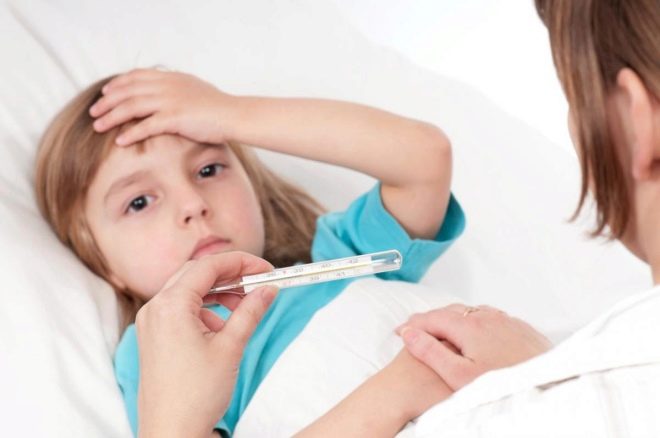Psychosomatics in children: find the underlying causes of the disease
Quite often, parents are faced with the fact that neither doctors nor diagnosticians fail to establish the true cause of the child’s illness. Another situation - long-term treatment, which does not lead to recovery. Doctors say that "this is chronic," and write another prescription for pills or injections. Psychosomatic medicine can interrupt the vicious circle, which will allow to establish the true root causes of the disease and tell you how to cure the child.
What it is?
Psychosomatics - This is a direction in medicine that examines the connection between body and soul, the influence of mental and psychological factors on the development of certain diseases. Many great doctors have described this connection, arguing that every physical ailment has a psychological root cause. Even today, many practitioners are confident that the process of recovery, for example, after surgery, is directly influenced by the patient's mood, his belief in the best outcome, his state of mind.
Doctors began to study this connection most actively at the beginning of the 19th century; in the middle of the 20th century, doctors from the USA, Russia and Israel made a great contribution to this study. Doctors talk about psychosomatic illness today if a detailed examination of the child did not reveal any physical reasons that could contribute to the development of his illness. There are no reasons, but there is a disease. From the point of view of psychosomatics, ineffective treatment is also considered. If all the doctor's prescriptions are fulfilled, medications are taken, and the disease does not recede, this can also be evidence of its psychosomatic origin.
Psychosomatic specialists consider any illness, even acute, from the point of view of a direct connection between the soul and the body. They believe that a person has everything necessary in order to recover, the main thing is to realize the underlying causes of the disease and take measures to eliminate them. If you express this idea in one phrase, you get a familiar statement - “All diseases from nerves”.
Principles
Psychosomatics is based on several important principles that parents need to know if they decide to look for the true causes of your child’s illness:
- Negative thoughts, anxiety, depression, fears, if they are rather long or deeply “hidden” always lead to the emergence of certain physical diseases. If you change the way of thinking, installation, the disease, which is not "yielded to" drugs, will go away.
- If the reason is true, then the cure will not be.
- The human body as a whole, as well as each of its cells, has a tendency to self-repair, regenerate. If you allow the body to do it, the healing process will be faster.
- Any illness in a child suggests that the baby can not be himself, that he is experiencing an internal conflict. If the situation is resolved, the disease will recede.
Who is most susceptible to psychosomatic diseases?
The answer to this question is unequivocal - any child of any age and gender.However, most often the diseases have psychosomatic causes in children who are in periods of age-related crises (at 1 year, at 3 years, at 7 years at 13-17 years). The imagination of all children is very bright and realistic, sometimes the kids blur the line between the fictional and the real. Who of the parents did not have to notice at least once that a child who really does not want to go to kindergarten in the morning, is sick more often? And all because he creates the disease himself, he needs it, in order not to do what he does not want so much - not to go to kindergarten.
A disease is needed as a way to attract attention, if there is little paid to it in the family, because they communicate more with a sick child than with a healthy child, they are surrounded by care and even gifts. Disease in children is often a protective mechanism in frightening and uncertain situations, as well as a way to protest if a family has been in a situation where the baby is uncomfortable for a long time. Many parents who have survived a divorce, are well aware that at the peak of experiences and family drama, the child "started at the wrong time" began to get sick. All this - only the most elementary examples of the action of psychosomatics. There are more complex, deep and hidden away into the subconscious of the baby reasons.
Before looking for them, you need to pay attention to the individual qualities of the child, his character, the manner in which he reacts to stressful situations.
The most serious and chronic diseases occur in children who:
- do not know how to cope with stress;
- communicate little with their parents and others about their personal problems and experiences;
- are in a pessimistic mood, always waiting for an unpleasant situation or a dirty trick;
- are under the influence of total and permanent parental control;
- they do not know how to rejoice, they do not know how to make surprises and gifts for others, give joy to others;
- they are afraid of not meeting the exaggerated requirements imposed on them by parents and teachers or educators;
- they can not observe the regime of the day, do not get enough sleep or eat poorly;
- painfully and strongly take into account the opinions of others;
- do not like to part with the past, throw away old broken toys, make new friends, move to a new place of residence;
- prone to frequent depression.
It is clear that individually each factor listed happens from time to time with each person. On the development of the disease affects the duration of emotions or experiences, and therefore long depression is dangerous, not one-time apathy, long fear, and not a minute state is dangerous. Any negative emotion or setting, if it lasts long enough, can cause a certain disease.
How to find the cause?
Without exception, all diseases, according to the statements of the world’s famous psychosomatics (Louise Hay, Liz Burbo and others), are based on five main bright emotions:
- fear;
- anger;
- sadness;
- interest;
- joy.
They should be considered in three projections - how the child sees himself (self-esteem), how the child sees the world around him (attitude to events, phenomena, values), how the child interacts with other people (conflicts, including hidden ones). It is necessary to establish a relationship of trust with the child, try to find out with him, what excites and disturbs him, what upsets him, whether there are people he does not love, what he is afraid of. Children's psychologists, psychotherapists can help in this. As soon as the approximate circle of emotions of the child is outlined, it is possible to start working through the root causes.
Some popular authors (same Louise Hey) have made psychosomatic tables, to ease the task. They indicate the disease and the most common causes of their occurrence. However, it is impossible to trust such tables blindly, because they are rather average, made up often when observing a small group of people with similar symptoms and emotional experiences.
The tables do not take into account the personality and personality of your child, and this is a very important point. Therefore, it is advisable to get acquainted with the tables, but it is better to analyze the situation on your own or contact a specialist in the field of psychosomatics - now there are some.
It should be understood that if the disease has already manifested itself, it is obvious, then the path is very long - from thought to emotion, from creating erroneous attitudes to turning these attitudes into the wrong way of thinking. And because the search process can be quite long. After the reason is found, it is necessary to work on all the changes that it has caused in the body - this will be the treatment process. The fact that the cause was found correctly and the healing process began, will be indicated by the improvement of the general condition, reduction of symptoms. Parents will almost immediately pay attention to positive changes in the baby's well-being.
Disease development
It is necessary to understand that the thought itself does not cause an attack of appendicitis or the appearance of allergies. But the thought gives impetus to muscle contraction. This connection is clear to everyone - the brain gives commands to the muscles, setting them in motion. If a child has an internal conflict, one thought will tell him to “act” and the muscles will be brought up. And the other (conflicting) emotion will say “do not do that” and the muscle will freeze in a state of readiness, without making a movement, but without returning to its original calm state.
This mechanism is quite primitive can explain why the disease is formed. It is not only about the muscles of the arms, legs, back, but also about the small and deep muscles of the internal organs. At the cellular level with such a long spasmwhich is practically not felt, metabolic changes begin. Gradually, the tension is transmitted to the neighboring muscles, tendons, ligaments, and with sufficient accumulation a moment comes when the weakest organ fails to sustain and ceases to function as it should be.
The brain "signals" not only muscles, but also the endocrine glands. It is known that fear or sudden joy cause an increase in adrenaline production by the adrenal glands. In the same way, other emotions affect the balance of hormones and secretory fluids in the body. With an imbalance, which is unavoidable with prolonged exposure to a particular organ, the disease begins.
If a child does not know how to “dump” emotions, but only accumulates them, not expressing, not sharing his thoughts with others, hiding from them his real experiences, fearing to be misunderstood, punished, convicted, the tension reaches a certain point, and is thrown out in the form diseases, because the output of energy is needed in any form. Such an argument looks very convincing - two children who live in the same city, in the same environmental situation, who feed the same, have the same sex and age, do not have congenital diseases, and for some reason suffer differently. One for the season of ARVI pereboleet up to ten times, and the other does not get sick even once.
Thus, the influence of ecology, lifestyle, nutrition, immunity - not the only thing that affects the incidence. A child with psychological problems will get sick several times a year, and a child without such problems will never get sick.
Not quite obvious yet for researchers is a psychosomatic picture. congenital diseases. But the majority of specialists in the field of psychosomatics consider such ailments as a result of incorrect attitudes and thoughts of a woman during pregnancy and even long before its occurrence. First of all, it is important to understand exactly how a woman perceived children before pregnancy, what emotions the fetus caused during pregnancy, and how she felt about the father of the child at that time.
Harmonious couples, who mutually love and expect their baby, are much less likely to have children with congenital diseases than in families where the mother experienced the rejection of father's words and deeds, if she regularly thought that it was not worth getting pregnant. Few mothers who bring up disabled children, children with severe congenital ailments are even willing to admit to themselves that there were negative thoughts, hidden conflicts, fears, and rejection of the fetus in some moments, maybe even thoughts about abortion. It is doubly difficult to realize later that the child is sick because of the mistakes of adults. But mother can still help alleviate his condition, improve the quality of life, if she has the courage to work out the underlying causes of the baby’s illness.
Possible causes of certain diseases
As already mentioned, the reasons should be considered only taking into account the nature and characteristics of this particular child, his family environment, the relationship between parents and baby, and other factors that may affect the psyche and emotional state of the child. We will give only a few diagnoses, the most studied psychosomatic direction of medicine with the possible causes of their occurrence: (for the description, data from several diagnostic tables were used - L. Hey, V. Sinelnikova, V. Zhikarentseva):
Adenoids
Quite often, adenoiditis develops in children who feel unwanted (subconsciously). Mom should remember if she did not want to have an abortion, if there was any disappointment after giving birth, postpartum depression. Adenoids child "asks" for love and attention, and also encourages parents to abandon conflicts and quarrels. To help the baby, you need to change the attitude towards him, to satisfy his needs for love, to resolve conflicts with the second half.
Medical installation: "My baby is welcome, beloved, we always needed it."
Autism
The most likely cause of autism is considered to be a defensive reaction, which the kid turned on at some point in order to “shut down” from scandal, screams, insults, beatings. Researchers believe that the risk of developing autism is higher if the child becomes a witness to the strong scandals of the parents with the possible use of violence before the age of 8-10 months. Congenital autism, which doctors associate with a gene mutation, in terms of psychosomatics, is a prolonged sense of danger in a mother, perhaps from her very childhood, fears during pregnancy.
Atopic dermatitis
Like most diseases that have a particular relationship to allergies, atopic dermatitis is a rejection of something. The stronger the child someone or something does not want to take, the stronger the manifestations of an allergic reaction. Have baby atopic dermatitis it may be a signal that the adult's touch is unpleasant for him (if he is taken too cold or wet with his hands, if a strong and unpleasant smell emanates from the person). Scarce so asks not to touch him. The treatment facility: “The baby is safe, nothing threatens him. All the people around him wish him well and health. He is comfortable with people. ”
The same installation can be used for other types of allergies. The situation requires the elimination of unpleasant physical effects.
Asthma, bronchial asthma
These ailments, like some other diseases associated with the onset of respiratory failure, more often occur in children who are pathologically strongly tied to their mother. Their love is literally suffocating. Another option is the severity of parents in raising their son or daughter. If a child is told from an early age that it is impossible to cry, it is indecent to laugh loudly, to jump and run on the street is the height of bad taste, then the child grows up, afraid to express his true needs. They gradually begin to “choke” him from the inside.New installations: “My child is safe, he is loved very much and unconditionally. He can perfectly express his emotions, he sincerely cries and rejoices. ” Mandatory measures - eliminate pedagogical "excesses."
Angina
The disease can talk about the fear of the child to express something, to ask for something very important to him. Sometimes children are afraid to raise their voices in their own defense. Angina is more characteristic of timid and indecisive children, quiet and shy. By the way, similar deep-seated causes may be found in children suffering from laryngitis or laryngotracheitis. New installations: “My child has the right to vote. He was born with this right. He can openly and boldly say everything he thinks! ” To the standard treatment of angina or chronic tonsillitis, you should definitely add role-playing plot games or a visit to the psychologist's office, so that the child can realize his right to be heard.
Bronchitis
Bronchitis, especially chronic, is very necessary for a child to reconcile his parents or other relatives with whom he lives together or defuse the tense situation in the family. When the cough strangles the baby, the adults automatically fall silent (note on occasion - it really is!). New installations: "My child lives in harmony and peace, he likes to communicate with everyone, he is pleased to listen to everything around, because he hears only the good." Mandatory parental actions are urgent measures to eliminate conflicts, and it is necessary to remove not only their “loudness”, but also the very fact of their existence.
Myopia
The causes of myopia, like most vision problems, are unwillingness to see something. Moreover, this reluctance is conscious and decisive. A small-sighted child can become 3-4 years old due to the fact that from birth he sees in his family something that scares him, makes him close his eyes. This can be a difficult parental relationship, physical abuse, and even a daily babysitting for the child, which he does not like (in this case, the child often develops in parallel and is allergic to something).
At an older age (in school and adolescence), diagnosed myopia may indicate a child’s lack of goals, plans for the future, unwillingness to see beyond today, fear of responsibility for decisions taken independently. In general, many problems with organs of vision are associated with these causes (blepharitis, conjunctivitis, and in case of anger - barley). New installation: “My child clearly sees his future and himself in it. He likes this beautiful, interesting world, he sees all his colors and details. ” At a younger age, a correction of family relations is needed, a revision of the social circle of the children. In adolescents, a child needs assistance in vocational guidance, communication and cooperation with adults, the fulfillment of their responsible tasks.
Diarrhea
This is not about a single diarrhea, but about a problem that has a protracted nature or diarrhea, repeated with an enviable frequency. With a liquid stool, children tend to react to intense fear, to expressed anxiety. Diarrhea is an escape from something that defies childish thought. These can be mystical experiences (fear of Babai, zombies) and very real fears (fear of the dark, spiders, cramped rooms, and so on). It is necessary to identify the cause of fear and eliminate it. If this does not work at home, you should definitely ask for help from a psychologist.
New installation: “My baby is not afraid of anyone. He is brave and strong. He lives in a safe space where nothing threatens him. ”
Constipation
Tendency to constipation is characteristic of greedy children, however, and adults too. Also, constipation can talk about the child's unwillingness to part with something. Sometimes constipation begins to torment a child precisely at the time when he is undergoing major life changes - moving, transferring to a new school or kindergarten.The child does not want to part with old friends, with an old apartment, where everything is clear and familiar to him. Problems begin with the chair. Constipation in infants may be associated with his subconscious burden to return back to the familiar and protected environment of the mother's womb.
A new treatment facility: “My child can easily part with everything that he no longer needs. He is ready to accept everything new. ” In practice, confidential communication, frequent discussion of the merits of a new garden or a new apartment is required.
Stuttering
Quite often, a child who does not feel safe for quite a long time begins to stutter. And this speech defect is peculiar to children, who are strictly forbidden to cry. Children stutter in the depths of their souls suffer greatly from the impossibility of self-expression. It should be understood that this possibility disappeared earlier than normal speech, and in many ways its disappearance was the cause of the problem.
New installation: “My child has great opportunities to show the world his talents. He is not afraid to express his feelings. ” In practice, zaika is good to do creativity, drawing and music, but best of all - singing. Categorical prohibitions to cry - the path to illness and problems.
Runny nose
Protracted rhinitis may indicate that the child has low self-esteem, that he urgently needs to understand his true value in this world, to recognize his abilities and merits. If it seems to the child that the world does not understand it and does not appreciate it, and this state is delayed, it can be diagnosed as antritis. The treatment facility: “My child is the best. He is happy and very loved. He just needs me. " Additionally, you need to work with the child's assessment of himself, to praise him more often, to encourage him.
Otitis
Like any other diseases of the organs of hearing, otitis can cause negative words, swearing, mate, which the child is forced to listen to from adults. Not wanting to listen to something, the child consciously limits the abilities of his hearing. The mechanism of development of sensorineural hearing loss and deafness is more complex. In the case of such problems, the child categorically refuses to listen to someone or something that severely hurts him, offends, and degrades his dignity. In adolescents, hearing problems are associated with a reluctance to listen to parental instruction. Treatment facilities: “My child is obedient. He hears well, he likes to listen and hear every detail of this world. ”
In fact, you need to reduce excessive parental control, talk with your child on topics that are pleasant and interesting for him, get rid of the habit of “reading morals”.
Fever, fever
Unreasonable fever, fever, which holds for no apparent reason in normal tests, may indicate an internal anger that has accumulated in the child. An angry child can at any age and the impossibility of expressing anger comes out in the form of heat. The younger the child, the harder it is for him to express his feelings in words, the higher his temperature is. New installations: "My child is positive, he is not angry, he knows how to let go of the negative, does not save him, and does not hide evil on people." In fact, you should set up a child for something good. The attention of the baby must be switched to a beautiful toy with good eyes. With a big child, you definitely need to talk and find out what kind of conflict situations he recently had, for whom he keeps evil. After pronouncing the problem, the child will become much easier, and the temperature will begin to fall.
Pyelonephritis
This disease often develops in children who are forced to do not "their" business. Mom wants his son to become a hockey player, so the child is forced to attend the sports section, while he himself is closer to playing the guitar or drawing landscapes with wax crayons. Such a child with repressed emotions and desires is the best candidate for the role of the patient of a nephrologist.New installation: "My child is engaged in a favorite and interesting business, he is talented and he has a great future." In practice, you need to allow the child to choose his own business for himself, and if hockey is not a joy for a long time, you need to leave the section without regrets and go to a music school where he is so torn.
Enuresis
The main reason for this unpleasant nightmare is often fear and even horror. And most often, according to experts in the field of psychosomatics, a child’s feeling of fear is somehow connected with the father - with his personality, behavior, educational methods of the father, his attitude towards the child and his mother. New installations: “The child is healthy and not afraid of anything. His dad loves and respects him, wishes him well. ” In fact, sometimes quite capacious psychological work with parents is required.
findings
Vomiting, cystitis, pneumonia, epilepsy, frequent acute respiratory viral infections, stomatitis, diabetes mellitus, psoriasis and even lice - each diagnosis has its own psychosomatic cause. The main rule of psychosomatics is not to replace traditional medicine. Therefore, the search for the causes and their elimination on the psychological and deeper level should be dealt with in parallel with the prescribed treatment. Thus, the probability of recovery significantly increases, and the risk of relapse decreases markedly, because the psychological problem found and correctly solved is a minus one disease.
See the next video for all about the psychosomatic causes of childhood illnesses.
